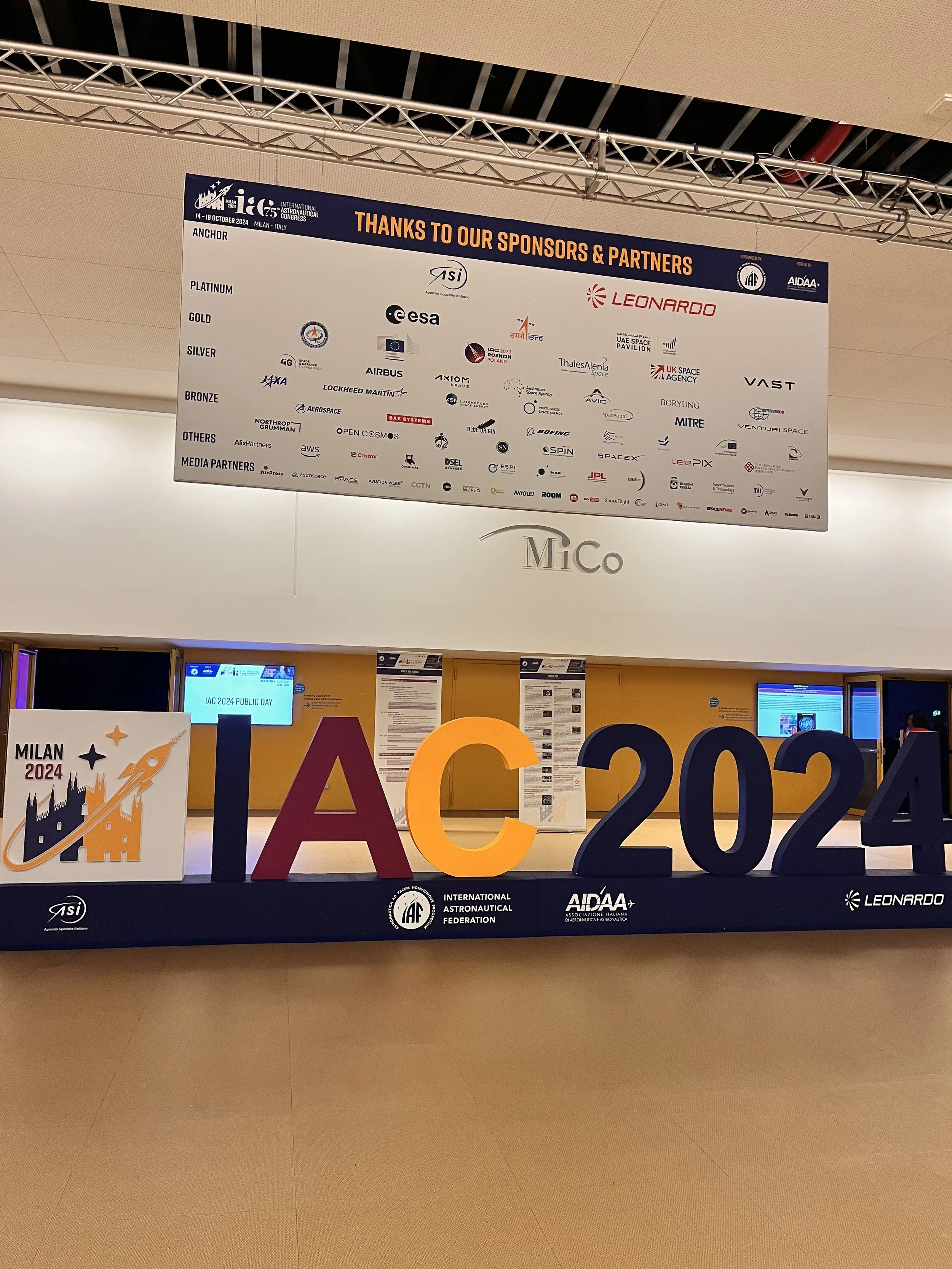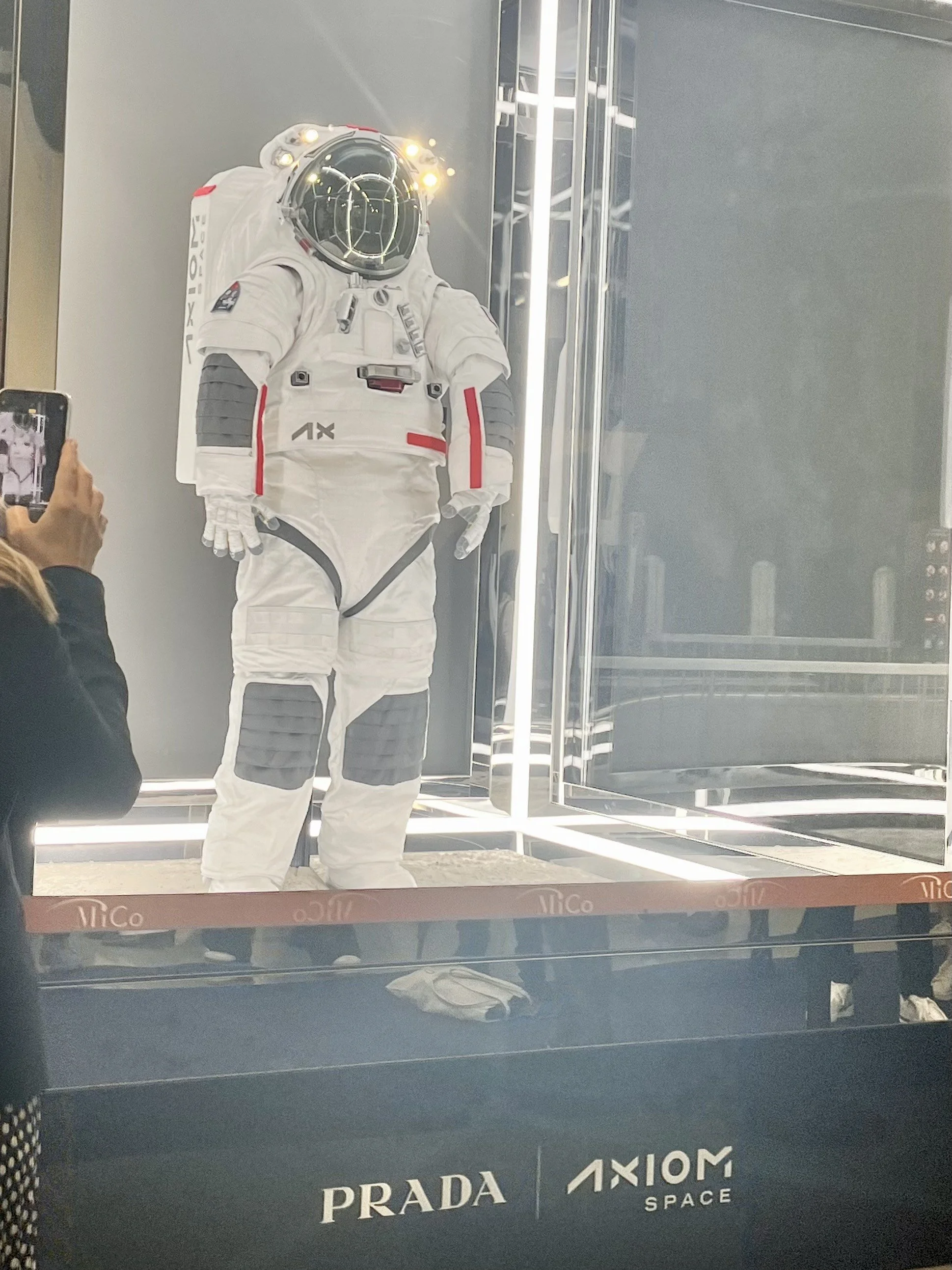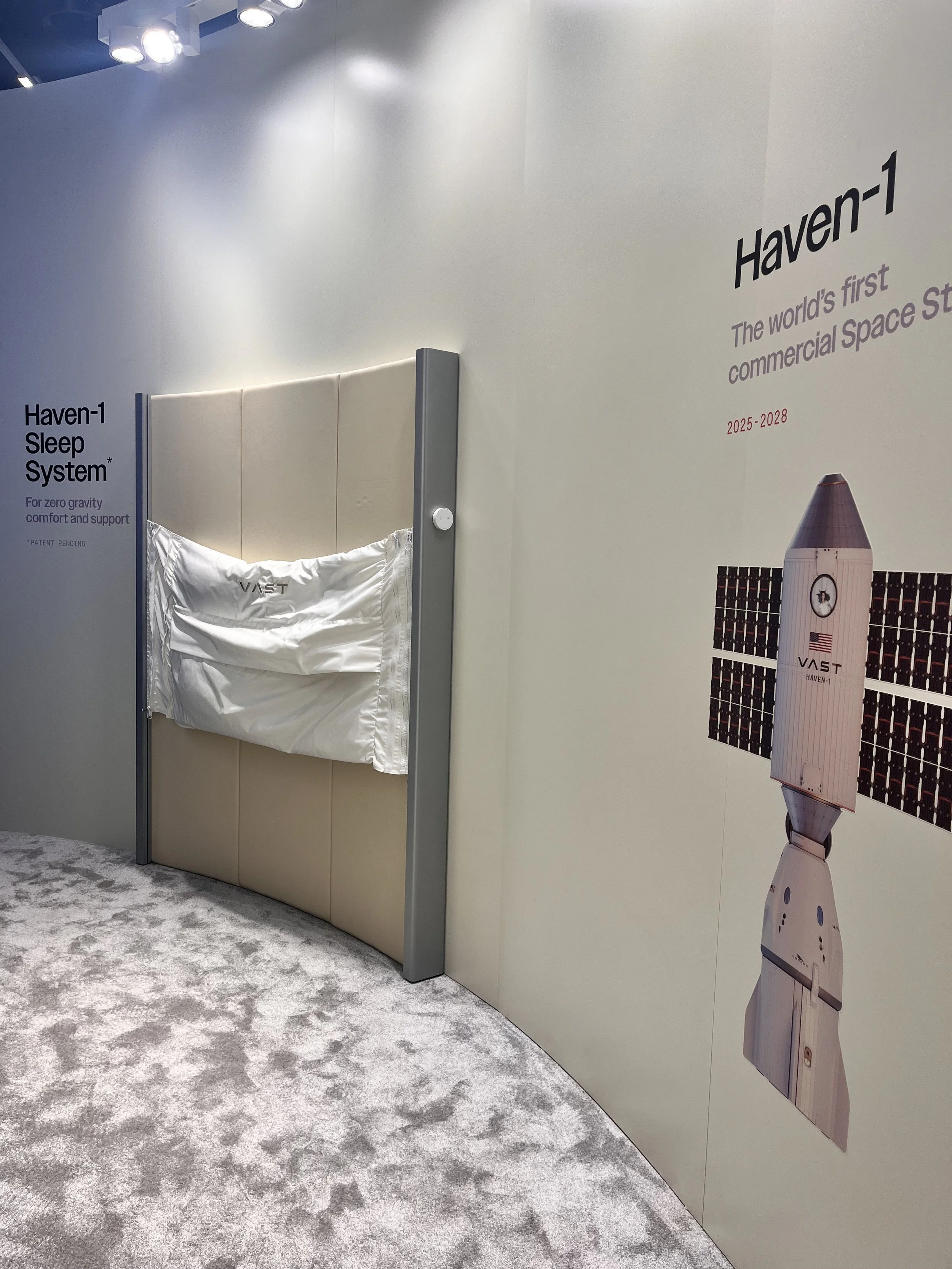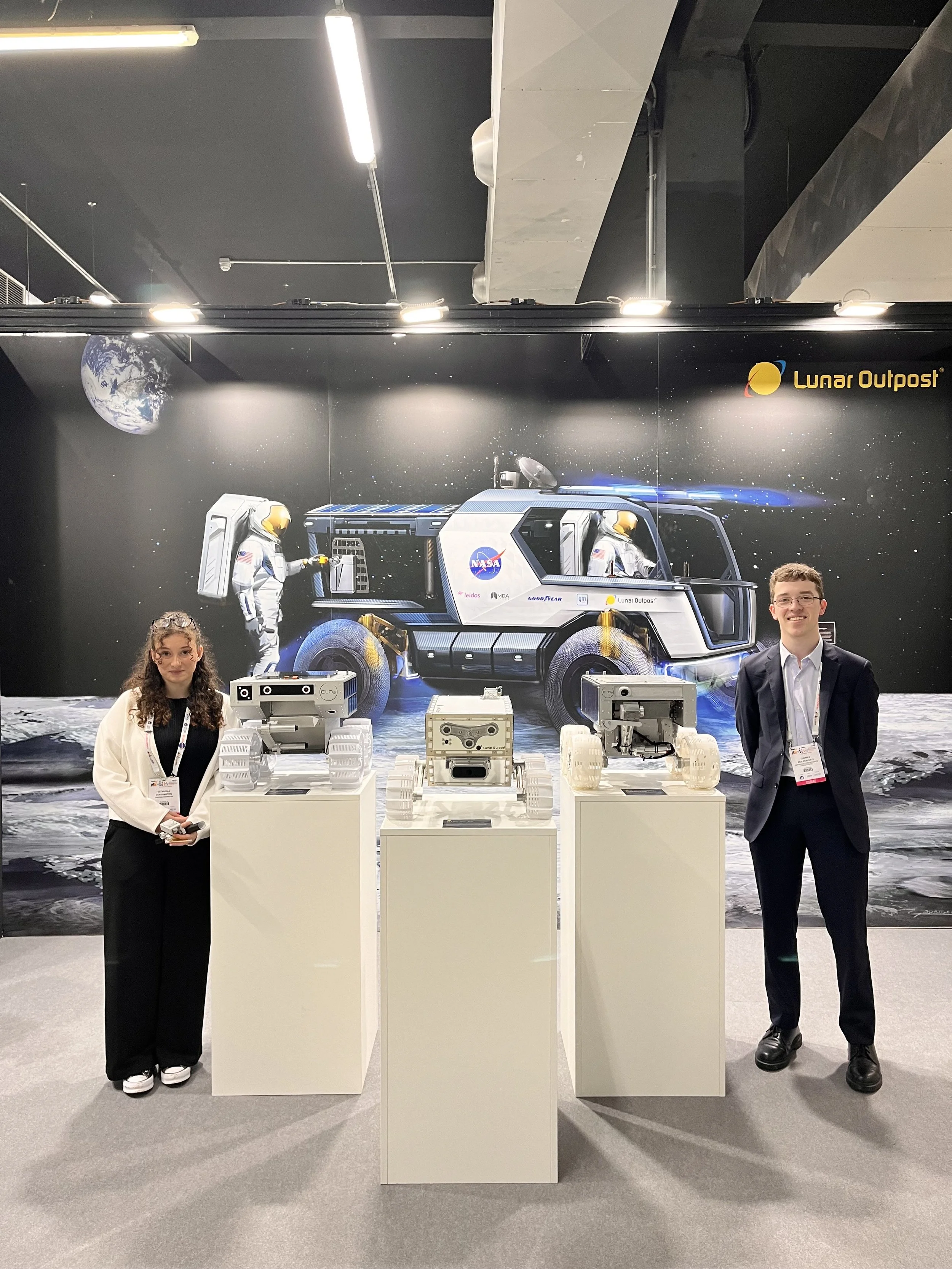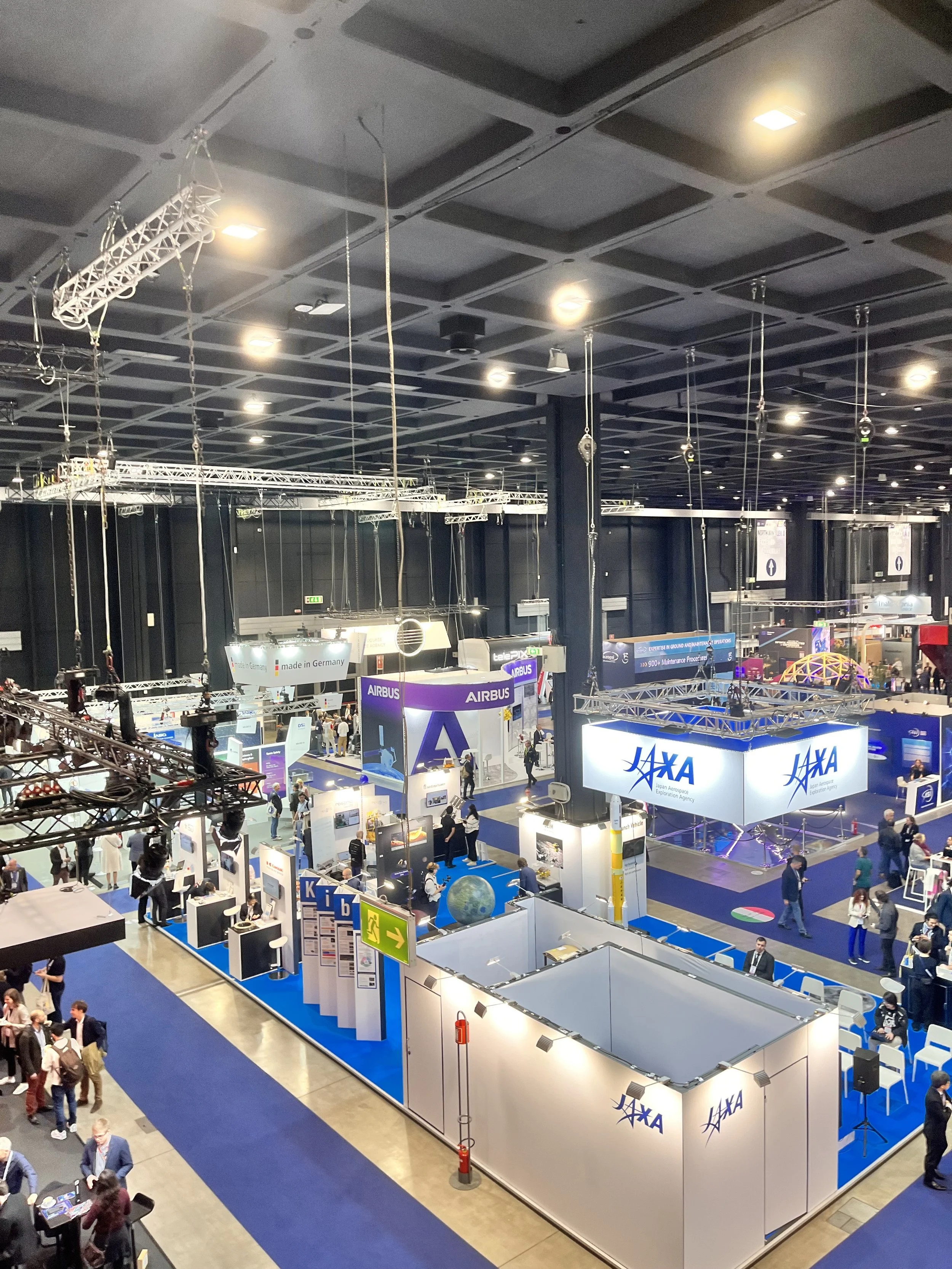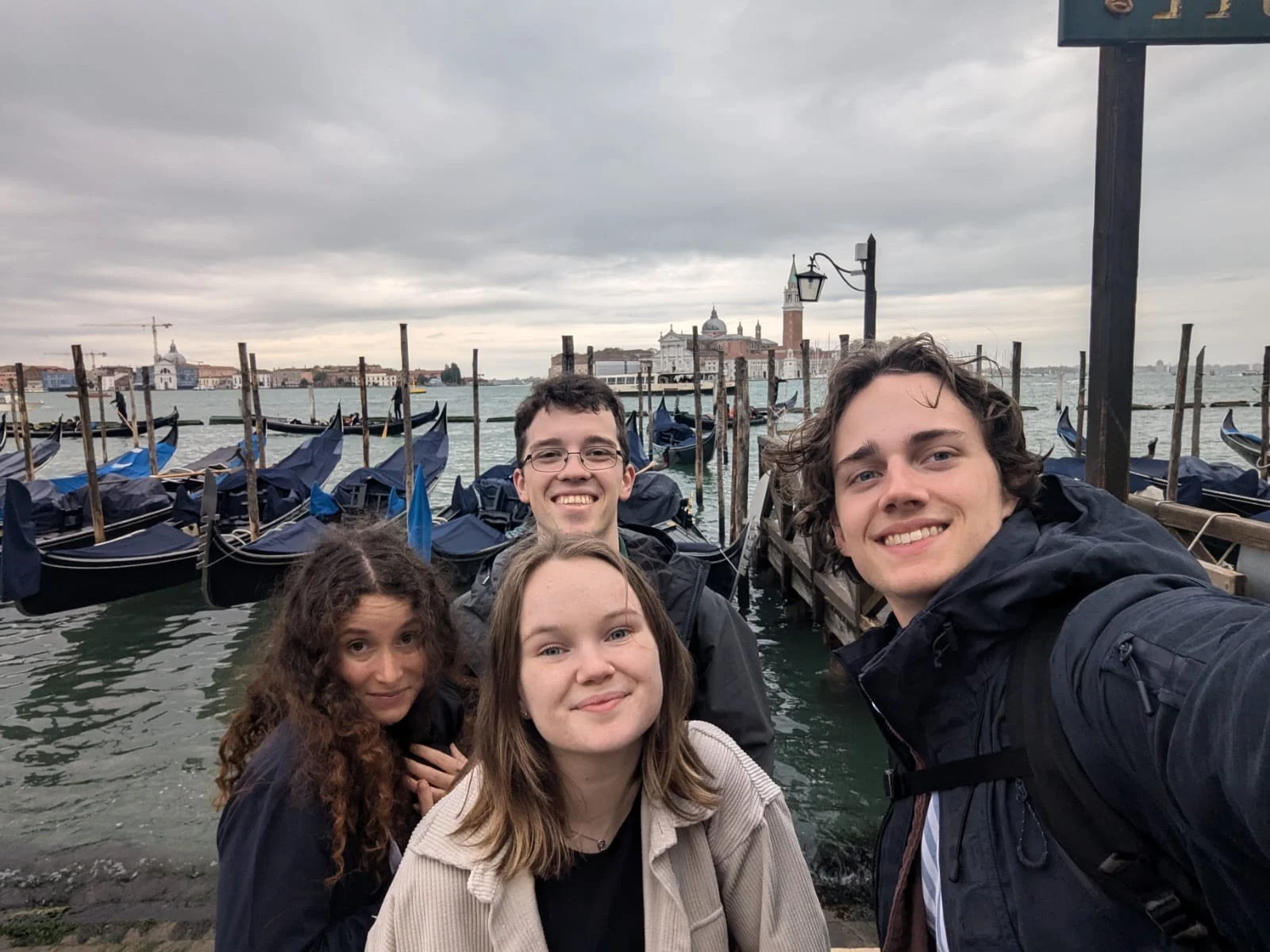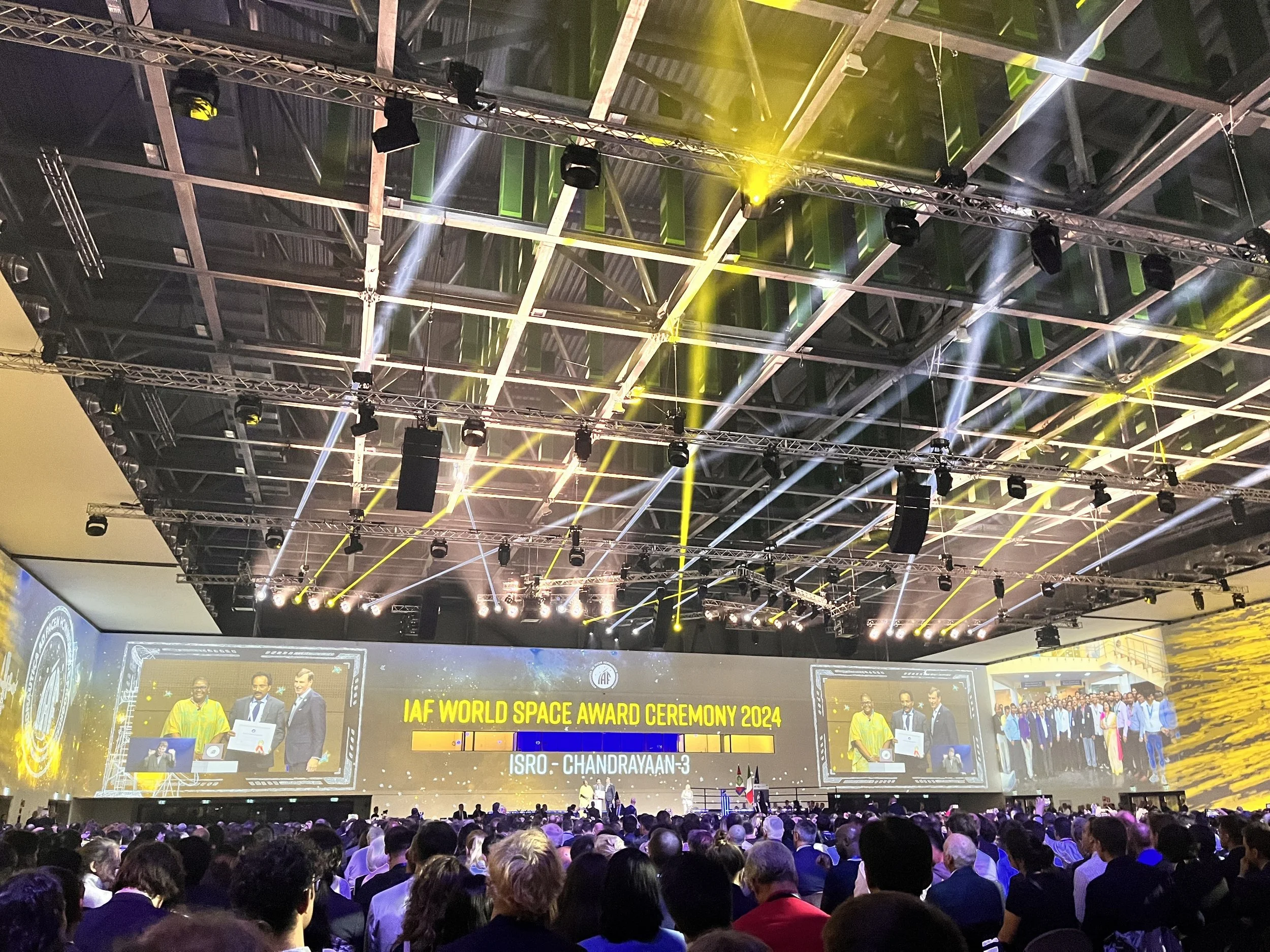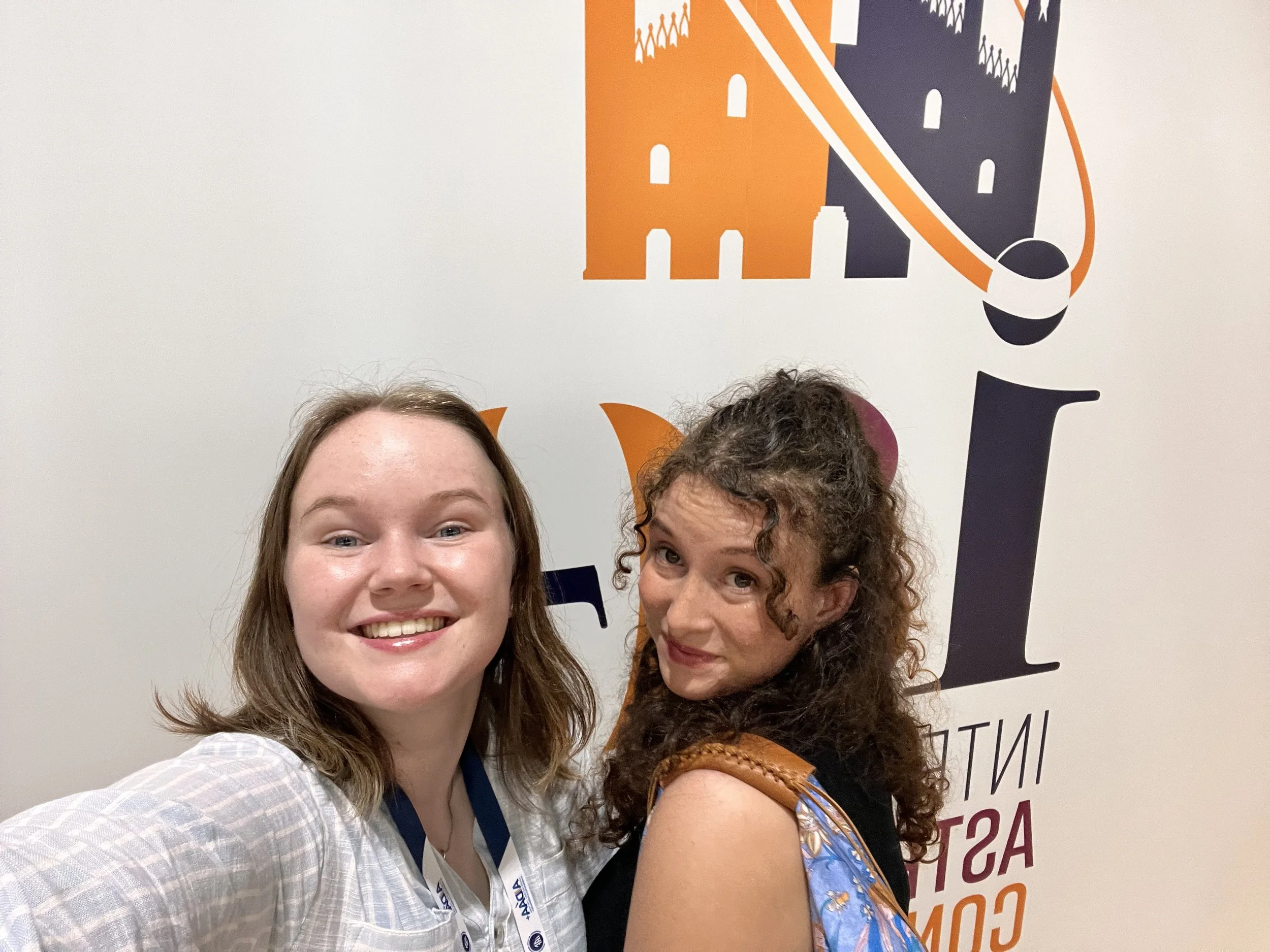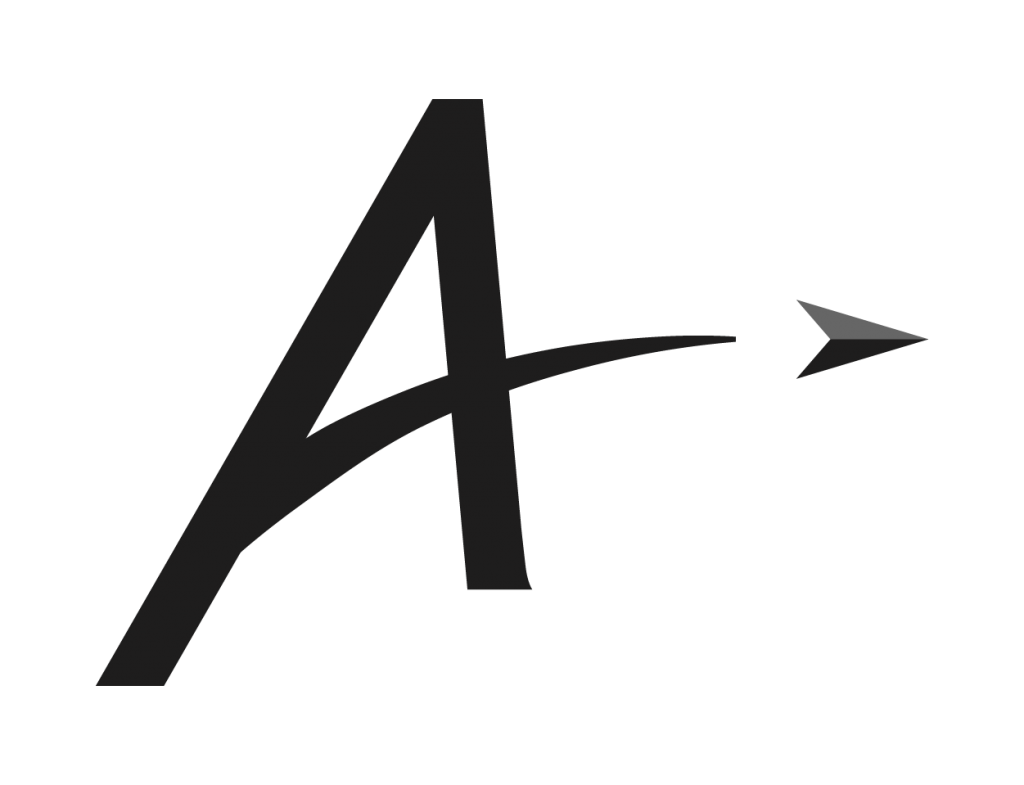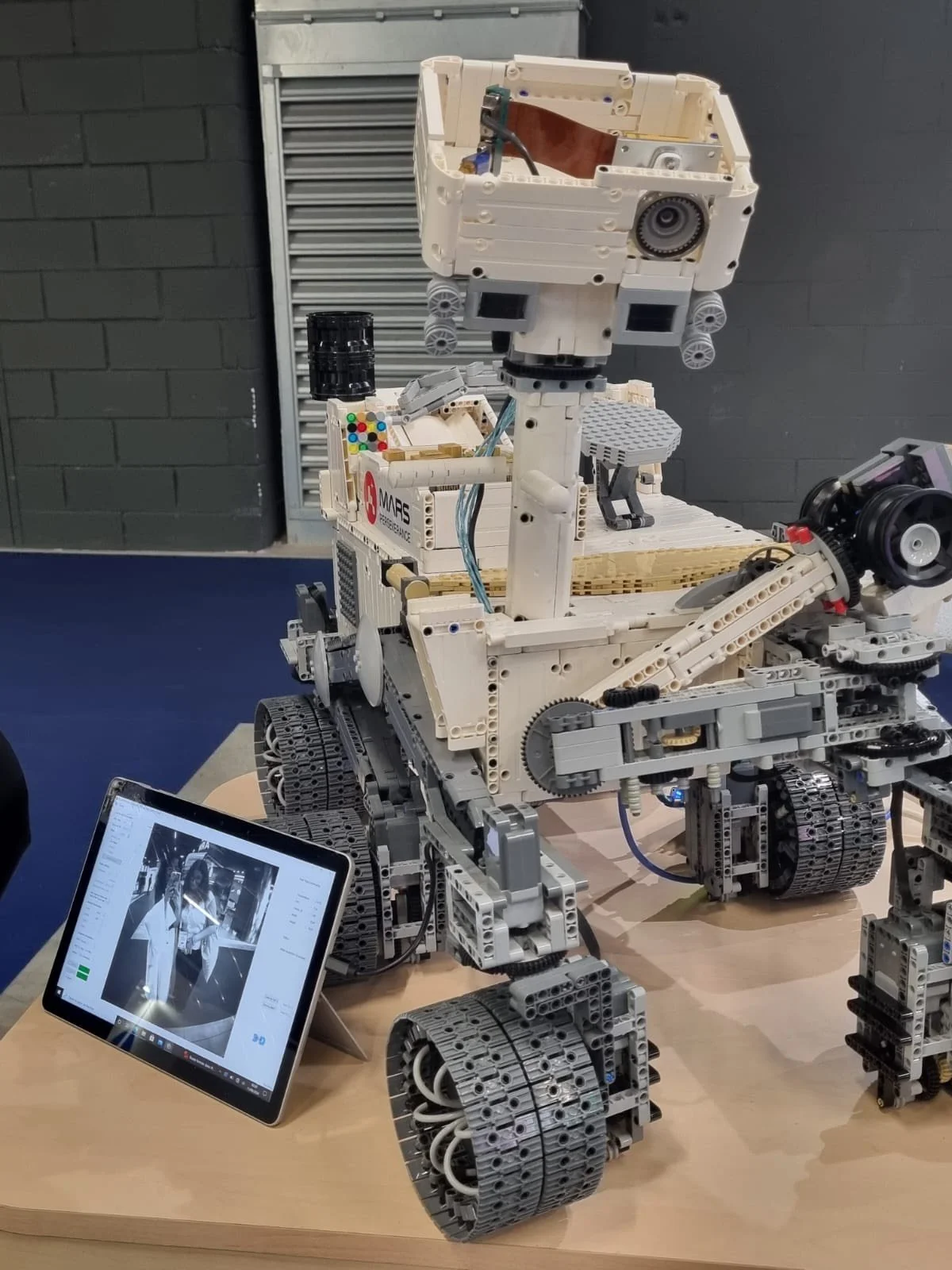
Astra Alumni Articles
〰️
Astra Alumni Articles 〰️
AS: Tell us a bit about yourself and the work you do that’s related to the space industry.
GC: I’m Georgi Coddington. So far my involvement in the space industry has mainly revolved around the Astra program which is an initiative by the Australian Youth Aerospace Association (AYAA). I first joined Astra as a participant in the 2022-23 program where I explored the processing of satellite image data and development of AI datasets for bushfire monitoring. After that I took over as the Deputy Director & a Program Coordinator for the Critical Space Infrastructure topic in the 2023-24 program, and since then from the 2024-25 program onwards, I have been serving as the Director of Astra. Apart from that I’m involved with the Australian Space Diversity Alliance, and I helped to establish two student associations dedicated to space technologies; The Rover Team of University of Wollongong, which participated in the Australian Rover Challenge for the first time in 2024, and the RMIT HIVE rocketry team. These milestones represent key moments in my space career, where I had the opportunity to give back to the emerging community of young people passionate about space.
AL: My name is Alana Liebelt and I’ve just wrapped up my Bachelor of Mathematical and Computer Sciences at the University of Adelaide, where I majored in Artificial Intelligence. Currently, I’m working as a Software Engineer in the Australian defence sector, which has taught me a lot about working with complex systems and tackling technical challenges. I was the Communications Manager for the 2022/2023 Astra program, and now I’m the Deputy Director for this year’s program! and I also volunteer with a few space-focused organisations like Robinson Aerospace Systems, the Andy Thomas Space Foundation.
I’m really passionate about space education and outreach. I’m a space communicator at the Australian Space Discovery Centre, where I get to talk to the public (especially students) about all things space which is an extremely enjoyable and fulfilling experience!
AS: Let’s focus on the International Astronautical Congress. What initially motivated you to attend the IAC last year?
GC: I actually had a paper accepted for IAC 2024 on the Astra Program. My paper explored the importance of peer led programs for professional development and driving space sector progress, and how Astra offers insights on how to create a future proof space workforce. I wanted to attend IAC for so many reasons, but mainly to be immersed in knowledge, learn from industry talks and paper presentations, and to gain inspiration on niche topics relevant to Australia’s place in the global space sector that we could explore more within the Astra program.
AL I have attended a fair few local space industry events and conferences around Australia, and I always came back feeling more inspired and eager to get involved in the space sector. I was keen to take that a step further by engaging with the global space community, and the IAC felt like the perfect opportunity to broaden my understanding and connect with international professionals and organisations in the field.
AS: Certainly, the IAC is any space enthusiast's dream to be at, especially when you’re young and looking for inspiration and knowledge. Did you receive a scholarship to attend the event? If so, share with us about how you applied and how you got this opportunity?
GC: Yes! I applied for AYAA’s Young Australian Space Leader Award and was honestly so surprised when my application was successful. Candidates for the award were from all around Australia and the award is open to anyone who has been involved in any of AYAA’s programs, which includes Astra. There were 6 of us selected, and I know that my fellow recipients will contribute to Australia’s space sector in enormous ways when I see the amazing contributions they are already making towards the industry.
AL: I was lucky to receive one of the Young Australian Space Leader scholarships offered by AYAA. The scholarship is open to anyone with involvement across the organisation, and I was privileged enough to have been the Communications Manager for the Astra Program back during the 2023/2024 program. After filling out an application, I was lucky enough to be selected alongside 5 other incredible individuals, which enabled me to attend IAC.
AS: For someone who has never been to IAC before and is eager to participate, how would you describe the overall atmosphere of the congress?
GC: It was an otherworldly experience for me - I had never been to such a large space event before, it highlighted the enormity of the global space industry and gave me a new perspective on how many people are driving progress in the sector. There were so many exhibitors including NASA, JAXA, and other space agencies. My favourite was the Vast stand where they were showcasing their proposed space station Haven-2 which will replace the ISS by 2030.
AL: The overall atmosphere of the congress was dynamic and inspiring. There was so much passion and enthusiasm from attendees representing all areas of the space industry, from researchers and engineers to students and policy makers. It was a great mix of people all eager to share ideas, learn from each other, and work together on the big challenges and exciting opportunities in the space sector.
AS: Being at that event definitely sounds like a major highlight in the career of a young professional. The IAC features a wide range of panel talks and other types of sessions like keynote speeches, technical presentations, workshops, and networking events. What sessions did you choose to attend? Did you attend any technical sessions or panel discussions that were particularly impactful?
GC: My favourite technical session that I attended had a presentation from the Philippine Space Agency. It was titled 'Strengthening the Philippine Space Ecosystem through Small Satellite Development and Capacity Building' and was a part of the 25th Workshop on Small Satellite Programmes at the Service of Developing Countries. Something that I’m particularly passionate about in general is using space technologies to benefit communities. Learning about the expected applications of their Multispectral Unit for Land Assessment (MULA) satellite project which spans across agricultural monitoring, maritime and fisheries, and disaster response made me realize just how impactful datasets can be in improving communities worldwide. This session also marked the beginning of our partnership with PhilSA, who served as a Subject Matter Expert in our 2024/25 program. I also geeked out a bit on the IAC session A3.3A on Mars Exploration Co-Chair: Missions Current and Future technical session, which included an update on the ThalesAlenia Space Rosalind Franklin Mission.
AL: One session that really stood out to me was the "Intelligent Space" Next Generation Plenary, which was a panel made up of young space professionals. The discussion focused on how intelligent systems can operate in challenging space environments, where data is limited, communication delays are inevitable, and conditions are extreme for robotics. What really stuck with me was the conversations around data bias, AI ethics, and the policies and laws surrounding automation in space which, as someone with a STEM-heavy background, were incredibly interesting to learn about.
AS: There is growing momentum from a lot of private space companies and startups, which is very promising for the Australian space industry. How was the private sector’s involvement in space exploration represented at IAC last year?
GC: One of the most high-profile examples of private sector involvement was the unveiling of the Prada x Axiom Space spacesuit, where the American space infrastructure company Axiom and the Italian fashion house Prada came together to design new spacesuits for NASA for the Artemis III lunar mission returning humans to the moon after the last moon landing in 1972. It was an interesting collaboration that sparked mixed reactions across the congress, depending on who you spoke to.
AL: Private sector involvement definitely held a strong presence at the congress. There was a clear recognition that these companies are driving innovation and helping to lower costs, making space more accessible than ever. Many sessions highlighted partnerships between government and private companies, showing how collaboration is key to advancing space exploration and technology development. It was also interesting to see a wide range of private ventures, from startups developing cutting-edge satellite tech, to larger firms working on ambitious missions like lunar exploration and space tourism. IAC presented a massive opportunity for these companies and made it clear that the private sector plays an essential role in the future of our space ecosystem.
AS: The Australian space community is relatively close-knit, with many professionals already familiar with one another, but new talent keeps emerging every day. Did you have any memorable conversations or make valuable industry connections during the event, and have you had continuous professional relationships with any person/people you met during the event?
GC: Yes! As I mentioned before, attending the PhilSA presentation allowed me to find ways for us to collaborate through the Astra program. Another meaningful connection were the lovely ladies from Aerospace New Zealand, who gave me my very own New Zealand silver fern pin! I also got to meet and develop professional relationships with Lunar Outpost who also featured as a Subject Matter Expert on our 2024/25 Astra Program. I met a few astronauts as well, including German astronaut Alexander Gerst.
AL: Throughout the congress, I had some awesome conversations with a number of startup-founders, working on some incredibly innovative solutions in the space sector. I’ve kept in touch with quite a few of them, and have had the privilege of following along with their journeys since. It’s so inspiring to see their projects and companies evolving since we connected, and it has definitely motivated me in my own work within the space industry.
AS: How do you think the congress facilitates international collaboration in the space industry?
GC: First of all, you get access to a huge amount of information about the space industry stuff that’s really hard to come by otherwise. One of the coolest parts is that you can actually talk to the people who wrote the technical papers, which makes it all feel way more real and accessible. The exhibit hall is massive, and it’s packed with space professionals from all over the world showing off their projects. There’s also a pretty social atmosphere. The stands with free coffee definitely know what they’re doing, it gets people talking. Everyone’s really approachable and happy to chat. And honestly, even the merch helps, grabbing a sticker or a pin can be a great icebreaker when you’re not sure how to start a conversation.
AL: The IAC really excels at bringing people together from all corners of the space industry, whether it be governments, private companies, researchers, students, you name it. It creates a space where you can have meaningful conversations regardless of where you’re from or what area of the space industry you’re involved in. You get so many opportunities to talk to people, whether it's a formal panel, over coffee, or at a booth in the exhibition hall. It allows people working with similar challenges but in totally different contexts to share ideas and conversation, helping to spark collaborations that might not have happened otherwise.
AS: Let’s talk about the next gen talent in the industry, as two young space industry professionals, how do you think IAC is bringing together the next generation of space industry leaders and contributors?
GC: Again, there is really no place like IAC that you can just walk up and talk to whoever you want. You’re suddenly in the same room as the people shaping the future of space, and they’re actually open to chatting with you. For young professionals like us, it’s not just inspiring, it’s a chance to build real connections that can lead to future collaborations or career opportunities. It makes the whole idea of contributing to the industry feel a lot more tangible.
AL: I think IAC does an amazing job of bringing together the next generation of space leaders by creating a space where students, early-career professionals, and industry veterans can all engage on the same level. There are so many opportunities, whether it's through technical paper presentations, networking events, or just walking the exhibition floor, to connect, learn, and be inspired. It’s also really empowering to see young people not just attending, but actively contributing to the conversations, sharing research, and asking the big questions. It makes you feel like you’re not just watching the future of space unfold, but you’re actually part of it.
AS: Attending the IAC is definitely a dream come true for many young space professionals. What advice would you give to someone going for the first time?
GC: Brace yourself - when you first enter the IAC you'll be amazed at how many exhibitors there are and will most likely forget about the technical sessions you want to watch, there is also a probability of you getting lost while you’re so excited about everything that’s going on around you. It's a good idea to find your way around and get familiar with the venue, and then go to the technical sessions and explore the exhibition hall in your free time! Talk to as many people as you can because apart from at the IAC, you will most likely never see lots of these amazing space professionals again, so make the most out of it. Ask lots of questions, get everyone’s business cards and tap into their LinkedIns!
AL: It definitely helps to have a game plan before the conference starts! There are so many different sessions, presentations and panel discussions every day, so scoping out a few that you're particularly interested in saves you missing out. Also, make sure you pace yourself! Whilst the conference normally runs 9-5 each day, there'll be lots of awesome events in the mornings and evenings, so don't be afraid to take some breaks throughout the week.
AS: How do you see the topics discussed, innovations showcased, and concepts introduced at last year’s IAC starting to take shape, either already becoming reality or evolving into practical solutions for the future?
GC: They’re already becoming reality. Most of the technical presentations were based on projects that are actively being developed across the global space community. IAC really serves as a platform for international collaboration, so I have no doubt that a lot of the innovation we saw last year will evolve and come back even stronger at IAC 2025.
AL: A lot of the topics discussed at IAC 2024 already feel like they're starting to move from concept to reality. For example, sustainability in space is no longer just a talking point, and companies are already actively developing debris mitigation tech, reusable launch systems, and eco-friendly propulsion methods. There was also a strong push toward international cooperation and policy development, which is essential for turning these innovations into long-term, practical solutions. While some ideas are still in early stages, it is clear that the groundwork is being laid now, and many of the concepts introduced are already influencing how the space industry approaches its next big challenges.
AS: Every year, IAC takes space professionals to a different corner of the world, and it’s not just about the conference, it’s also a chance to explore a new city and make some unforgettable memories along the way. Milan definitely had its own vibe. Were there any cultural quirks, local experiences, or even logistical surprises that made your time there extra memorable?
GC: The culture was amazing - the art, history and food. Milan is such a vibrant city and having been there before I already knew that I would have a great time. Alana and I also got to explore Lake Como on a day trip before the IAC started, and then a few of us went to Venice after the last day! It was an amazing experience overall and I am so happy that we weren't only limited to exploring Milan and had the opportunity to explore nearby Italian cities and towns as well.
AL: One of the things that made the experience really memorable was being immersed in a different culture. Just getting around Milan, where English isn’t the main language, added a bit of a fun challenge to the trip and made even simple things like catching a train feel like an adventure. The city itself was beautiful and full of history, and it was amazing to experience that alongside the congress. We also took the opportunity to travel a bit outside Milan during our downtime, exploring places like Lake Como and Venice, and made so many memories with the people we met along the way!
GEORGI AND ALANA
RECAP: IAC 2024 MILAN
As Australia gets ready to host the IAC 2025 in Sydney, we wanted to share some exciting insights about last year’s conference.
In October 2024 IAC was hosted in Milan, Italy. With thousands of attendees from across the globe, the event brought together engineers, scientists, students, and policymakers to discuss the future of space exploration and innovation.
Two of our very own committee members from the Astra program, Georgi Coddington and Alana Liebelt, got the amazing opportunity to participate in IAC 2024. As young professionals in Australia’s growing space sector, their participation not only reflected Astra’s commitment to empowering future space leaders but also marked a valuable learning moment as the country prepares to welcome IAC 2025 in Sydney.
In this article, Georgi and Alana reflect on their time at IAC 2024, from technical insights and industry trends to standout moments and travel experiences, and share their thoughts on what makes this global event so impactful.
Please note that in this article, the initials 'AS' refer to our interviewer, Anjalee Senarath, and the initials ‘GC’ and ‘AL’ refer to our interviewees Georgi and Alana, respectively.
About the Author: Anjalee Senarath
Anjalee is a passionate skygazer who fell in love with the starry skies when she was a kid. Over the years, she has developed a liking for Physics and completed her Bachelor of Physics with Honours. Anjalee has worked as a technical writer, creative writer, business analyst and a projects manager. She is interested in science communication and sharing science with communities – which is one of the reasons that got her into Astra. When she’s not doing anything sciencey, she likes to go beach hopping, read a good book or take long walks in the sun.
This article is apart of an ongoing series: Astra Alumni Articles


